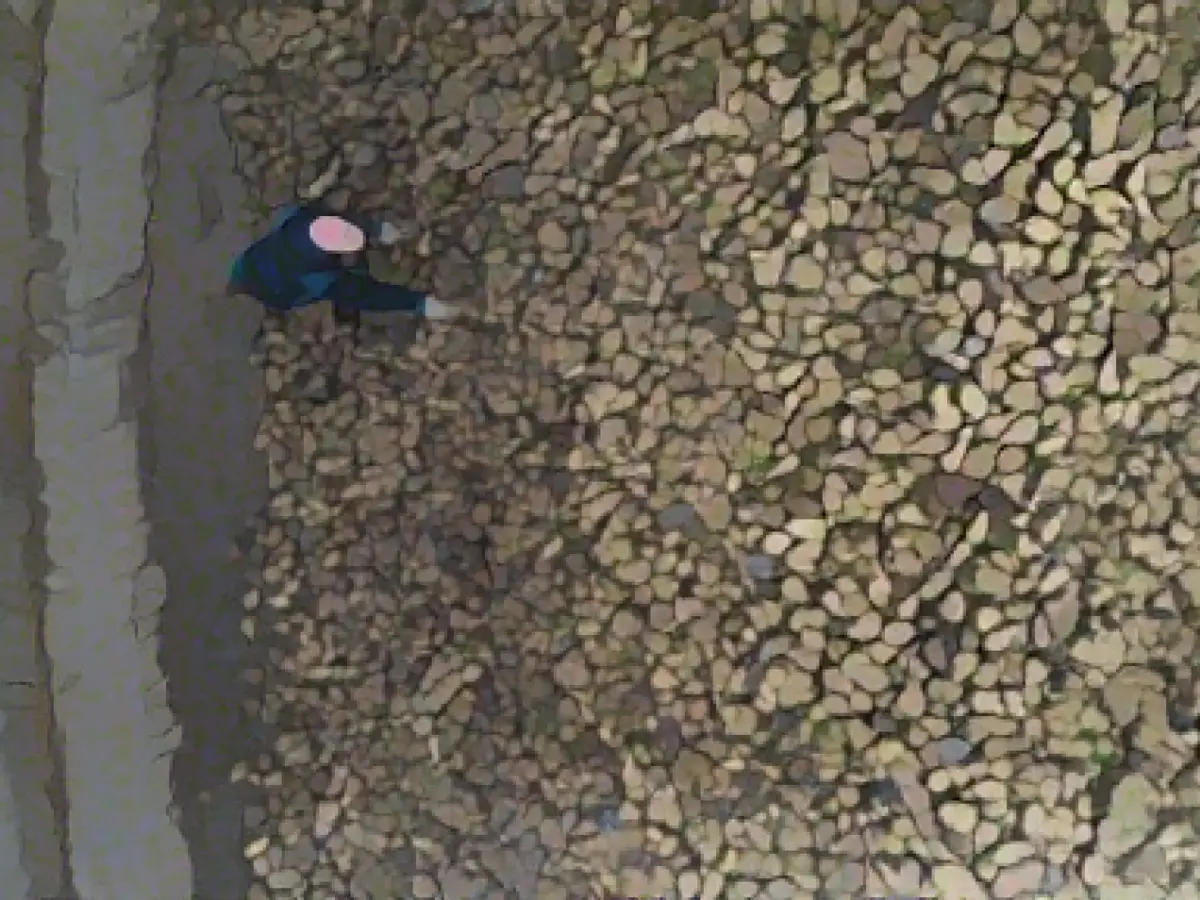Bad Weather Affects Sugar Beet Harvest in Southwest Germany: Yields Low
The wet weather of late has made the sugar beet harvest in Southwest Germany a real headache. The harvest isn't completed yet, as confirmed by the state farmers' association upon request. The remaining sugar beet stocks are still in the fields, unable to be reached due to the heavy rainfall that left the fields muddy and inaccessible for the harvesting machines.
The impact on the yield is significant. According to the State Statistical Office, this year's yield is expected to be 66 tons per hectare. That's a decrease of 5.2% compared to last year and a whopping 12.8% below the six-year average.
Not only the rain, but also bacterial diseases are causing problems for beet producers in some areas. Diseases such as Stolbur are a major concern and have been blamed for yield losses. Stolbur leads to shriveled, small beet bodies with a rubbery consistency and low sugar content.
Yields this year are highly variable, according to the farmers' association. From 30 tons per hectare to over 100 tons per hectare, everything is possible. The fluctuations in yield are due to a variety of factors, including the drought in summer, the regional distribution of rainfall, and other unforeseen circumstances.
Farmers are also expecting a lower sugar content in their crop. Regions vary in sugar content from 12% to 18%, while the average is 16% this year – below the long-term average of 18%.
Sugar beet is a crucial raw material for industrial sugar production. The beet from Baden-Württemberg, for example, is processed in Südzucker's Offenau sugar factory. However, the beet is also used as an energy source and feed for livestock. Approximately 18,700 hectares of sugar beet were cultivated in Baden-Württemberg this year. The state has a total of over 800,000 hectares of arable land.
The wet weather has also posed challenges for the sowing of winter cereals. The farmers have had to delay sowings in some cases, making it a significant hurdle for them. The State Statistical Office will release figures on fall sowing areas and sugar beet yields in Southwest Germany on Friday at 10 a.m.
Insights
Jerusalem artichoke, another agricultural product in Baden-Württemberg, faces similar disease-related challenges such as stem rot caused by Agroathelia rolfsii, which can lead to significant yield loss. This suggests that agricultural crops in the region may be at risk due to a variety of diseases.
While there's no specific information on the impact of rain and bacterial diseases on sugar beet harvest and yield in Southwest Germany, it's safe to assume that the region's agricultural sector is facing various environmental and disease-related challenges that can impact crop yields.
Now, farmers are holding on to hopes of a rainbreak, which could help complete the sugar beet harvest before it's too late.








